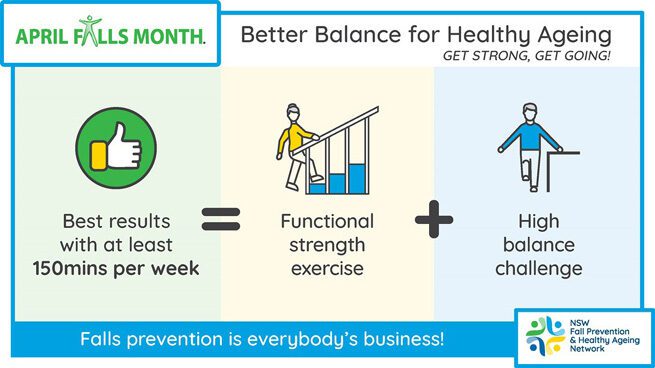Chatswood’s Jacqueline Close has been awarded for her work preventing falls in the elderly
Jacqueline Close was sitting in an airport in Singapore when she received an email she instantly thought was spam. “It was from the Governor General of Australia’s office saying that I’d been nominated for an Australia Day award,” she says. “I took the risk and pushed the link and then it became apparent that it was all legitimate.”
As a consultant geriatrician, the doctor has spent much of her career caring for older patients who have fallen and sustained significant injuries, like fractures. And in her academic career, Jacqueline has devoted 30 years to research – looking at why people have falls, how they can be prevented, and how they can be better managed within a hospital setting. Chatswood local Jacquline was ‘pleased as punch’ to be recognised on the 2024 Australia Day honours list and awarded a Member of the Order (AM) for her significant service to medical research and to medicine as an orthogeriatrician.
The conjoint professor at the University of NSW who moved to Australia from the UK in 2005 says she was ‘always interested in looking after older people with broken hips.’ “I always thought they were a group of people whose care perhaps wasn’t optimal.
“The very first research study I did in the UK was looking at older people coming to the emergency department with a fall and looking at ways of actually systematically looking to see why somebody is falling – rather than just putting a Band-aid on something.
“And so that was one of the first trials that showed the benefits of falls clinics,” she says, explaining that these clinics, which specialise in seeing people who have had falls to prevent future falls, are now common across the world.
She has since conducted many studies and trials, looking at everything from exercise intervention, using strength and balance training to prevent falls; to medication use and making sure people are not taking medications that have an affect on the brain, unless they need to.
“There’s plenty more to be done,” Jacqueline explains. “There’s the bit where you do the research, so you see where the problem is and you try to come up with some intervention that might make a difference. There is a huge gap between producing that in a paper and making it happen in real life. One of the major benefits of being a clinician researcher is you also have some ability to influence making things happen in a clinical setting.

“The hip fracture registry is a perfect example of that,” she says, explaining that national standards and guidelines have been set up in hospitals for hip fracture care, and the registry measures how well they perform against those standards. “We’re starting to see the benefits of it and now more people are having pain better managed.”
Looking to the future, Jacqueline says there’s a lot of work to be done in trying to prevent falls for people with dementia, looking at ways to minimise their risk of injury and the likelihood of a fall.
However there’s new sensor technology and wearable devices being tested for use in people’s homes which identify if they have fallen; along with programs to help the community exercise at home. “We need to think creatively about how to most effectively get people exercising,” Jacqueline says. “If we’re serious as a population about preventing falls in older people, it has to be strength and balance training.”








